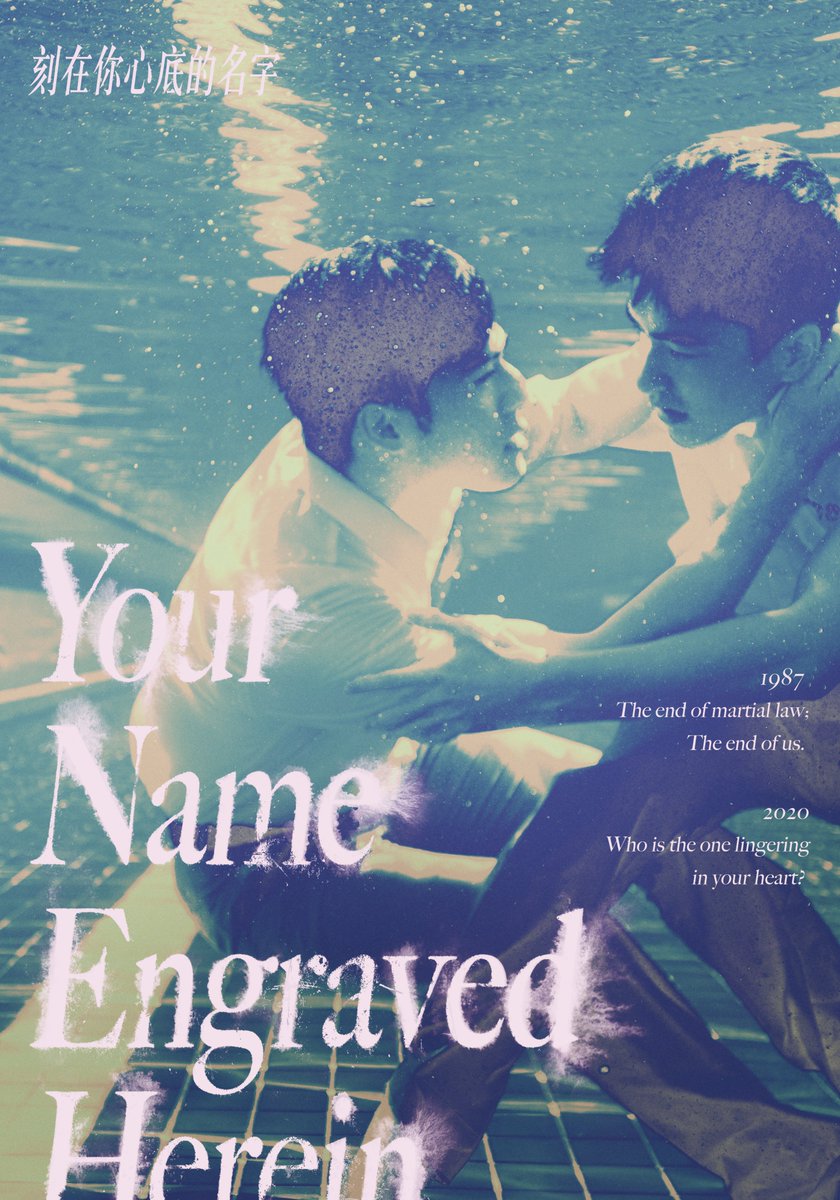YOUR NAME ENGRAVED HEREIN (刻在你心底的名字) (NETFLIX) (2020)
SYNOPSIS: Adapted from the Director Patrick Liu's high school memories,Your Name Engraved Herein is about two high school boys in an all-male boarding school exploring their friendship and genuine love for each other against the backdrop of the 1980s when Taiwan recently lifted its strict martial law, amid a transition from conservative society to become the most LGBTQ-friendly country in Asia. When the boarding school begins admitting females, their relationship faces an ultimate test with the emergence of a school girl.
MOVIE REVIEW:
If this movie did not take home the Best Original Film Song at last year’s Golden Horse Awards, we reckon there’d be quite an uproar. The song performed by Crowd Lu inspired countless covers, and the heartfelt tune thronged the Internet (the music video has garnered more than 22 million views on YouTube) and radio airwaves. That naturally lent heaps of publicity to the LGBTQ themed film directed by Patrick Kuang, which is based on the gay director’s own experiences. The movie went on to become the highest grossing LGBTQ film in Taiwan's history, as well as the most popular film of 2020. It also made news by becoming the first gay themed movie to exceed NT$100 million at the Taiwanese box office. This is made newsworthy with Taiwan being the first in Asia to legalise same sex marriage.
With all the hype, it is almost impossible to resist the temptation to find out why there is so much attention showered on the movie, as much as some viewers may not be the most receptive to this film genre. Essentially, the drama is a love story between two boys who first crossed each others’ paths in a Taiwanese Catholic high school in 1987, shortly after martial law had just been lifted. It was also a time when Taiwan was easing into freedom of speech and homophobia was still largely felt in the society.
With that somewhat repressive social setting as a backdrop, the story was in a good position to make its protagonists go through a bittersweet romance. In fact, that’s what this film is really all about. The 114 minute movie spends much time showcasing lingering shots on its two good looking leads Edward Chen and Tseng Jing Hua. It does not seem to be too interested exploring the deeper aspects of the era’s societal impact (having a priest to listen and give advice to an emotionally and physically hurt character seems too convenient for the plot). However, this may very well be the director’s intention, because everything else becomes a blur when one is deeply in love.
In terms of characterisation, it is not particularly groundbreaking with one character being soft spoken, while the other is a thrill seeker. The contrasting personalities make for good drama, and the two young actors ace their performances, making sure they give their best in every minute of their on screen appearance. The chemistry between Chen and Tseng would also move many, as viewers remember their first love. When the heartbreaking theme song plays during a key sequence, you may shed a few tears.
Besides an award winning theme song, the film also showcases beautiful cinematography. In the last leg of the movie, we see the middle aged versions of the characters (played by Leon Dai and Jason Wang) in Montreal, and this gives the cinematographer to capture the postcard pretty backdrops on film. There are also other scenes (most notably, the one where the two characters are on a remote island) which lend lots of feel to the story. The film also won Best Cinematography at the Golden Horse Awards, on top of receiving nominations for Best Supporting Actor (Dai), Best New Performer (Chen) and Best Original Film Score.
While we have seen affecting LGBTQ themed films, this one is a worthy watch because of its hype and the simplistic approach to a coming of age tale.
MOVIE RATING:




Review by John Li

